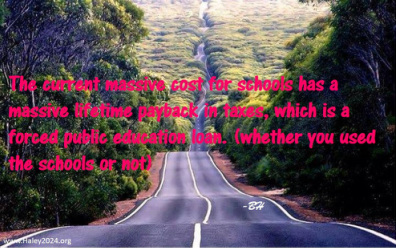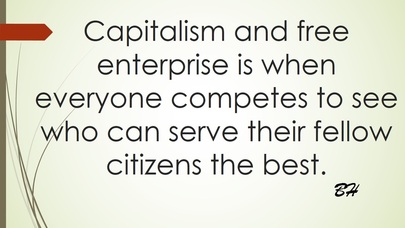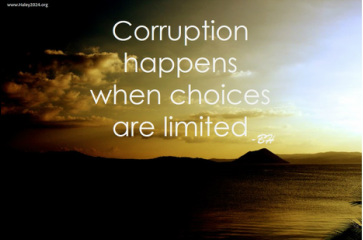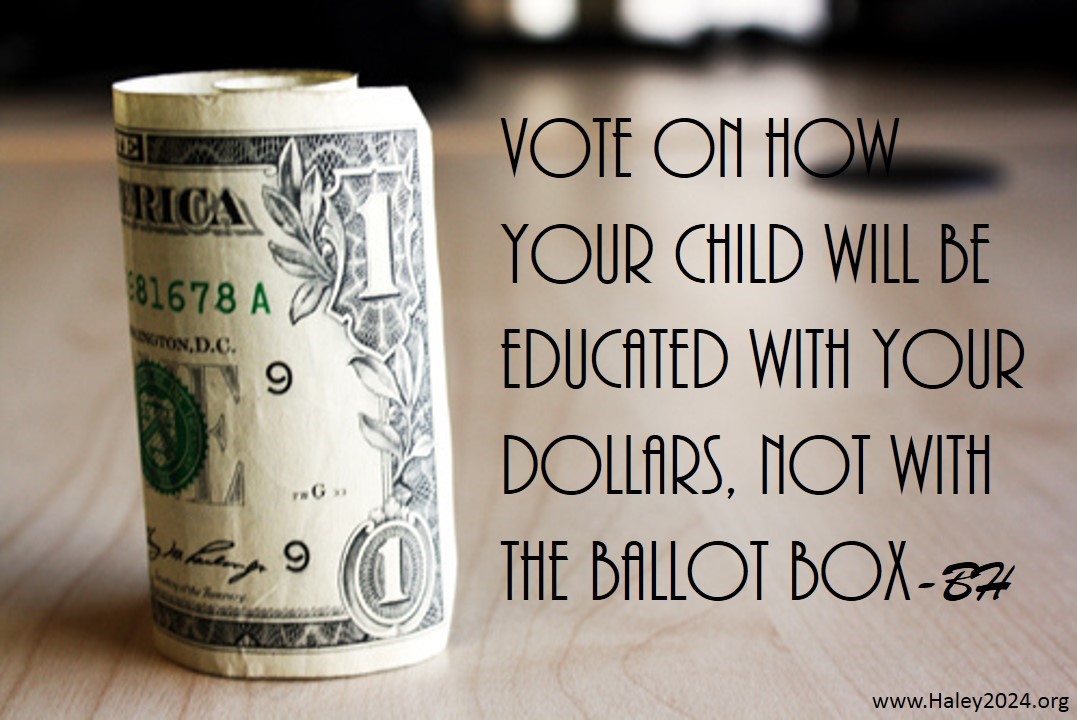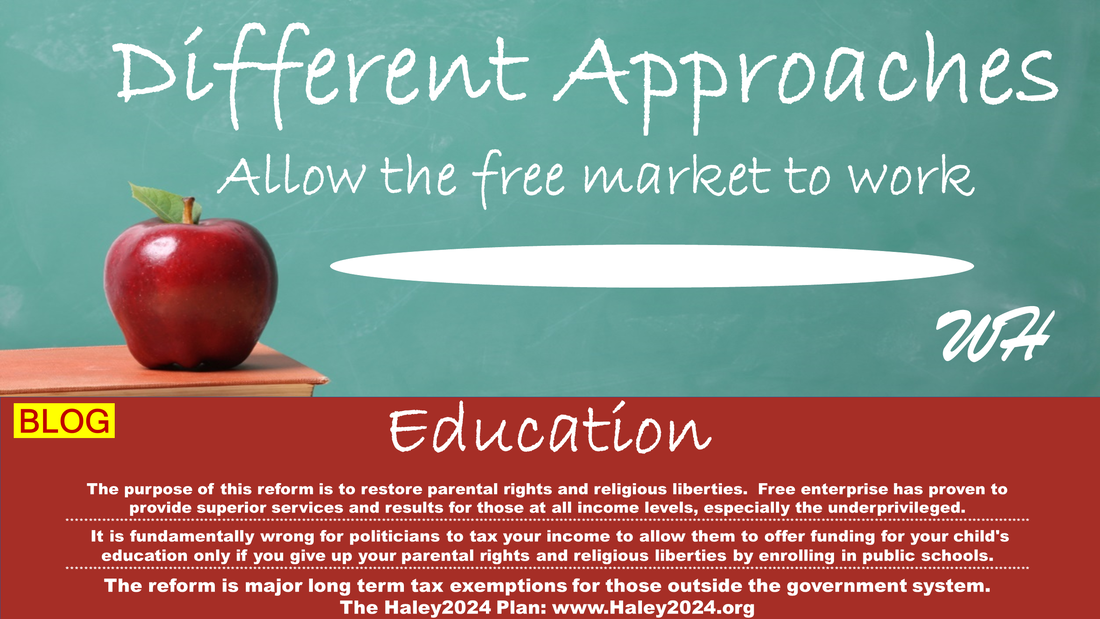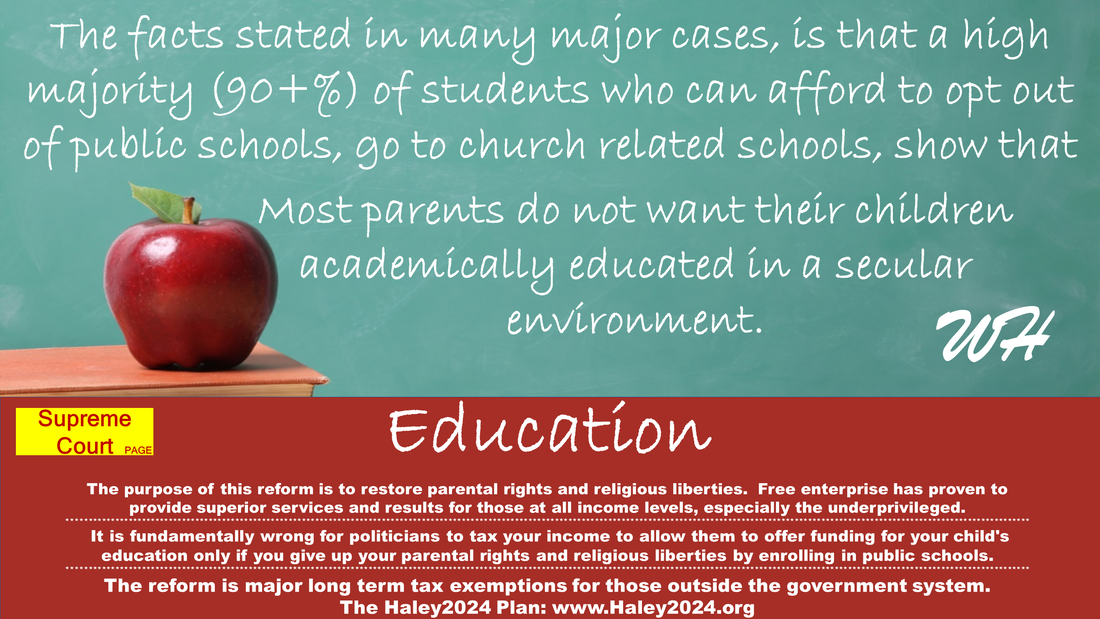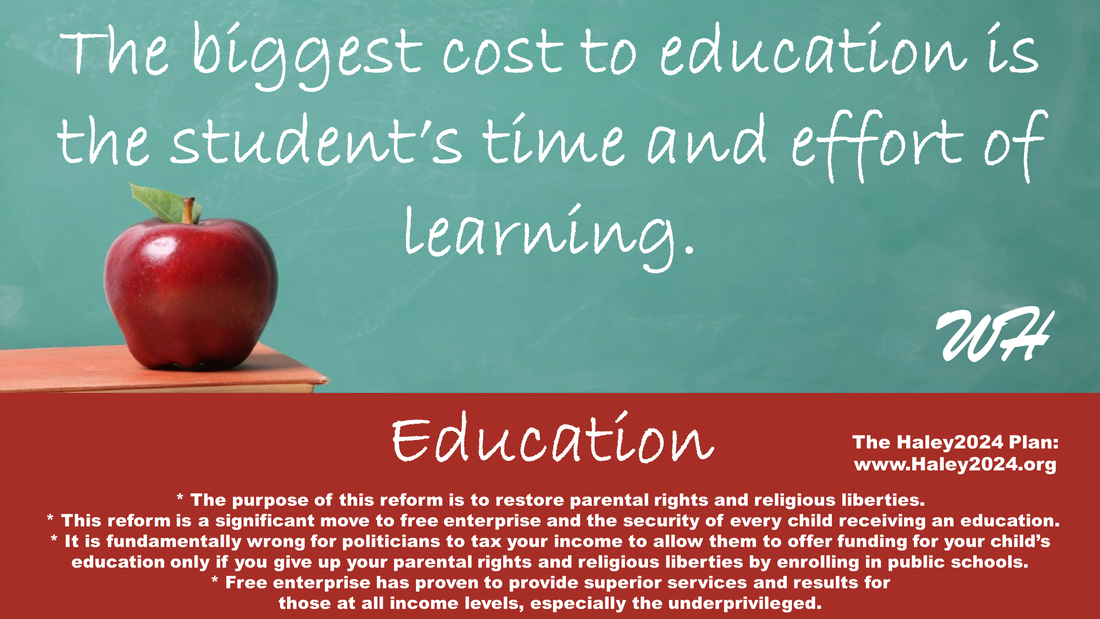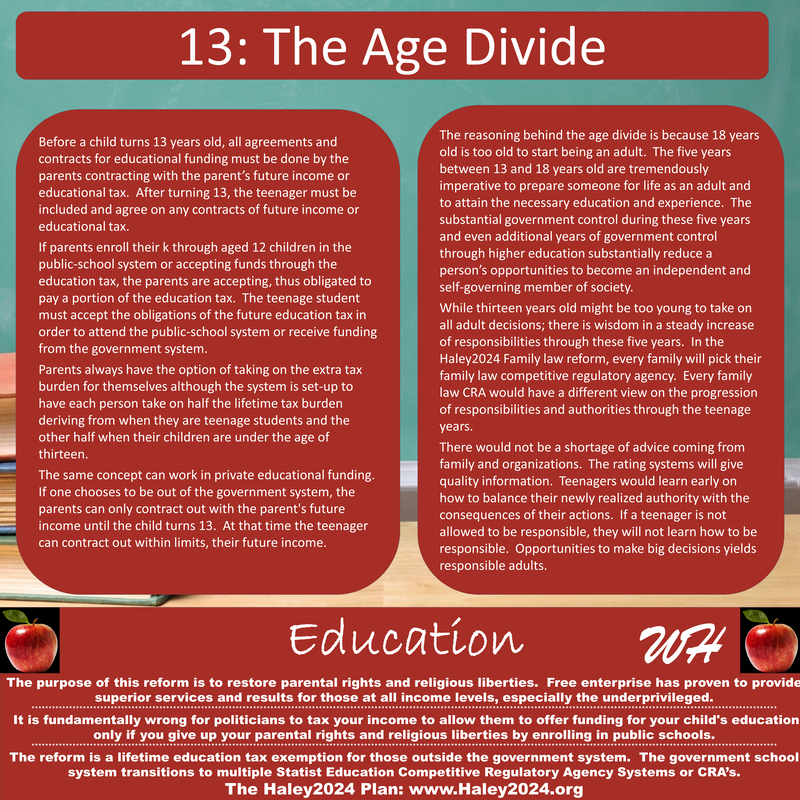| If parents enroll their k through aged 12 children in the public school system or accepting funds through the education tax, the parents are accepting, thus obligated to pay a portion of the education tax. The teenage student must accept the obligations of the future education tax in order to attend the public school system or receive funding from the government system. |
| The reasoning behind the age divide is because 18 years old is too old to start being an adult. The five years between 13 and 18 years old are tremendously imperative to prepare someone for life as an adult and to attain the necessary education and experience. The substantial government control during these five years and even additional years of government control through higher education substantially reduce a person’s opportunities to become an independent and self-governing member of society. |
| There would not be a shortage of advice coming from family and organizations. The rating systems will give quality information. Teenagers would learn early on how to balance their newly realized authority with the consequences of their actions. If a teenager is not allowed to be responsible, they will not learn how to be responsible. Opportunities to make big decisions yields responsible adults. |
| While thirteen years old might be too young to take on all adult decisions; there is wisdom in a steady increase of responsibilities through these five years. In the Haley2024 Family law reform, every family will pick their family law competitive regulatory agency. Every family law CRA would have a different view on the progression of responsibilities and authorities through the teenage years. |
